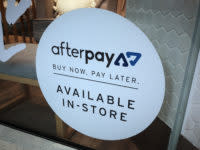Afterpay says it is just like Google or Facebook, and shouldn't be regulated like a payment service

Afterpay has made its submission to the RBA, arguing buy now, pay later companies should be able to stop retailers from passing on its fees to customers.
CEO Anthony Eisen argues in the submission provided to Business Insider Australia that Afterpay isn't a payment service and is instead more akin to Google and Facebook in driving sales.
Eisen claims that the sector can 'self-regulate', something that the financial services royal commission found typically doesn't work.
Visit Business Insider Australia’s homepage for more stories.
Afterpay's fight with the Reserve Bank (RBA) has kicked off again.
On Friday, the Australian company made its submission to the RBA, claiming it is in the same league as tech giants Facebook and Google, and shouldn't face regulation as a payment service.
"Afterpay’s unique characteristics and value proposition to merchants and consumers mean it should not be considered a payment system," CEO Anthony Eisen wrote in the submission provided to Business Insider Australia.
"As a customer acquisition channel for merchants, Afterpay competes with large players such as Google and Facebook, and provides leads to merchants at a much lower cost."
Instead, Eisen claims "merchants gain more from Afterpay than what they pay" – how very generous of him.
The rebranding exercise is Afterpay's attempt to avoid the RBA empowering retailers to pass on the platform's costs to consumers. Currently, Afterpay – and others like Zip – charges all merchants that use its service up to 6% of the purchase price, but prevents them from in turn charging customers fees.
Accordingly, shoppers get to break their service into four equal delayed payments for free, while struggling retailers pick up the bill via reduced profit margins thanks to Afterpay's fees. Compare that to the much smaller fees charged by credit card companies, which can, in turn, be charged to customers.
Of course, credit card companies also make a fortune on charging exorbitant, even predatory, interest rates north of 18% so aren't quite so dependent on fees.
But it's the prescriptive nature of Afterpay's product that have seen millions of Australian, American and British consumers flock to the service, while retailers meekly accept the cost of doing business. Eisen also wants a pat on the back for the most recent voluntary code Afterpay and its competitors have agreed to.
"The BNPL industry, as a growing and innovative industry, should also be recognised for its efforts to self-regulate and raise standards," he wrote.
Of course, Eisen doesn't mention that the industry standards agreed to aren't legally-binding, nor is there any real oversight on whether companies like Afterpay actually comply with them. Nor does he acknowledge that if the financial services royal commission proved anything, it is that self-regulation categorically doesn't work.
Eisen goes on to make the argument that global credit cards weren't properly regulated until 2004 despite making up a far great share of the payment economy. While not incorrect, it's a flawed defence to criticise the regulator for failing to do its job previously and then demanding they make the same mistake to profit your own business model.
The point is lost on Afterpay which repeatedly maintained it is, in fact, a marketing company of sorts, growing customer bases for the businesses that choose to use it.
It's not wrong – it may well provide more business, but it's just not the same business, and retailers particularly at the moment can't survive on sales alone – they need to also make money.
Whatever decision the RBA makes will have enormous consequences. Businesses, buy now, pay later companies and Australian customers all have a stake.

 Yahoo Finance
Yahoo Finance 
